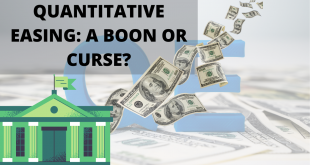When Should Governments Ban Bitcoin? When should governments ban new technologies? Watch on Rumble ““When Should Governments Ban Bitcoin?” [embedded content] You Might Also Like SNB Sight Deposits: Inflation Fear Decreasing, SNB Selling Euros 2021-08-04 Sight Deposits have fallen: The change is -0.2 bn. compared to last week, this means the SNB is selling euros and dollars....
Read More »The far-reaching implications of the amateur trading wave
[unable to retrieve full-text content]Part II of II by Claudio Grass, Hünenberg See, Switzerland Case in point: Silver “apes” One of the most astounding elements of this shift in retail investing is the proof it offers for what many of us knew along: When people can freely and directly vote with their wallets and put their money where their mouth is, one gets a much clearer picture of what the public, the market or any other large group really thinks and...
Read More »The far-reaching implications of the amateur trading wave
Part II of II by Claudio Grass, Hünenberg See, Switzerland Case in point: Silver “apes” One of the most astounding elements of this shift in retail investing is the proof it offers for what many of us knew along: When people can freely and directly vote with their wallets and put their money where their mouth is, one gets a much clearer picture of what the public, the market or any other large group really thinks and really wants. In this case, we first saw the wrath against...
Read More »The far-reaching implications of the amateur trading wave
Part I of II by Claudio Grass, Hünenberg See, Switzerland 2020 certainly was a year of a lot of “firsts”, most them extremely destructive to the economy, to our societies and to our everyday lives. However, there were a few positive developments too, among them being the fact that it was the year that ordinary people discovered and entered financial markets. Until last year, the world of trading and investing had long been closed to the average citizen, taxpayer,...
Read More »The far-reaching implications of the amateur trading wave
Part I of II by Claudio Grass, Hünenberg See, Switzerland 2020 certainly was a year of a lot of “firsts”, most them extremely destructive to the economy, to our societies and to our everyday lives. However, there were a few positive developments too, among them being the fact that it was the year that ordinary people discovered and entered financial markets. Until last year, the world of trading and investing had long been closed to the average citizen, taxpayer, and saver....
Read More »Freedom Is Not Free You Have To Fight For It, The People Will Demand Decentralization
[unable to retrieve full-text content]Claudio begins his discussion with him taking a trip from Switzerland to Spain. On his travels he realized that the borders are open for cars and people were not asked for proof of vaccination. The people will begin to come together when they cannot function in everyday life because of inflation. People will look for decentralization because the globalist system does not work for the people. Freedom is not free you have to fight for it.
Read More »Freedom Is Not Free You Have To Fight For It, The People Will Demand Decentralization
Claudio begins his discussion with him taking a trip from Switzerland to Spain. On his travels he realized that the borders are open for cars and people were not asked for proof of vaccination. The people will begin to come together when they cannot function in everyday life because of inflation. People will look for decentralization because the globalist system does not work for the people. Freedom is not free you have to fight for it. All source links to the report can be found...
Read More »Quantitative Easing: A Boon or Curse?
Central banks’ massive Quantitative Easing (QE) programs have come under scrutiny many times since the central banks fired up the printing press and began quantitative easing programs en masse after the 2008-09 Great Financial Crisis. However, the increase in central bank assets due to quantitative easing programs during the crisis pale in comparison to the QE programs during the Covid pandemic. As economies recovered after the Great Financial Crisis many worried...
Read More »War on Cash: EU steps up the fight
by Claudio Grass, Hünenberg See, Switzerland The prolonged and repeated lockdowns, business closures and travel bans have caused widespread economic devastation and changed the way all of us live, work and interact with each other. These were the most obvious changes that the covid crisis brought with it, however, a lot more has been unfolding in the background. Governments in most advanced economies have grasped the opportunity of this crisis and all the fear and uncertainty that...
Read More »Precious metals outlook: This summer presents a rare entry point
by Claudio Grass, Hünenberg, Switzerland It’s been an intense few weeks for precious metals investors, with gold and silver suffering setbacks and somewhat increased volatility. This has caused some observers and mainstream analysts to jump to gloomy conclusions and proclaim that gold’s bull run is over. Instead, they’re betting everything on the “great recovery” from the covid crisis and on an apparently imminent roaring comeback of the world economy. However, when one takes a...
Read More » Swiss Economicblogs.org
Swiss Economicblogs.org



